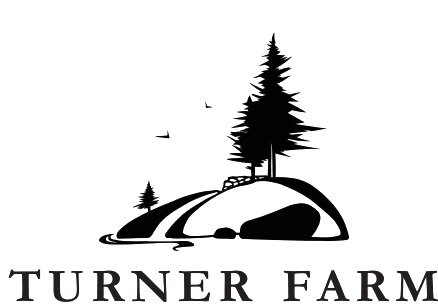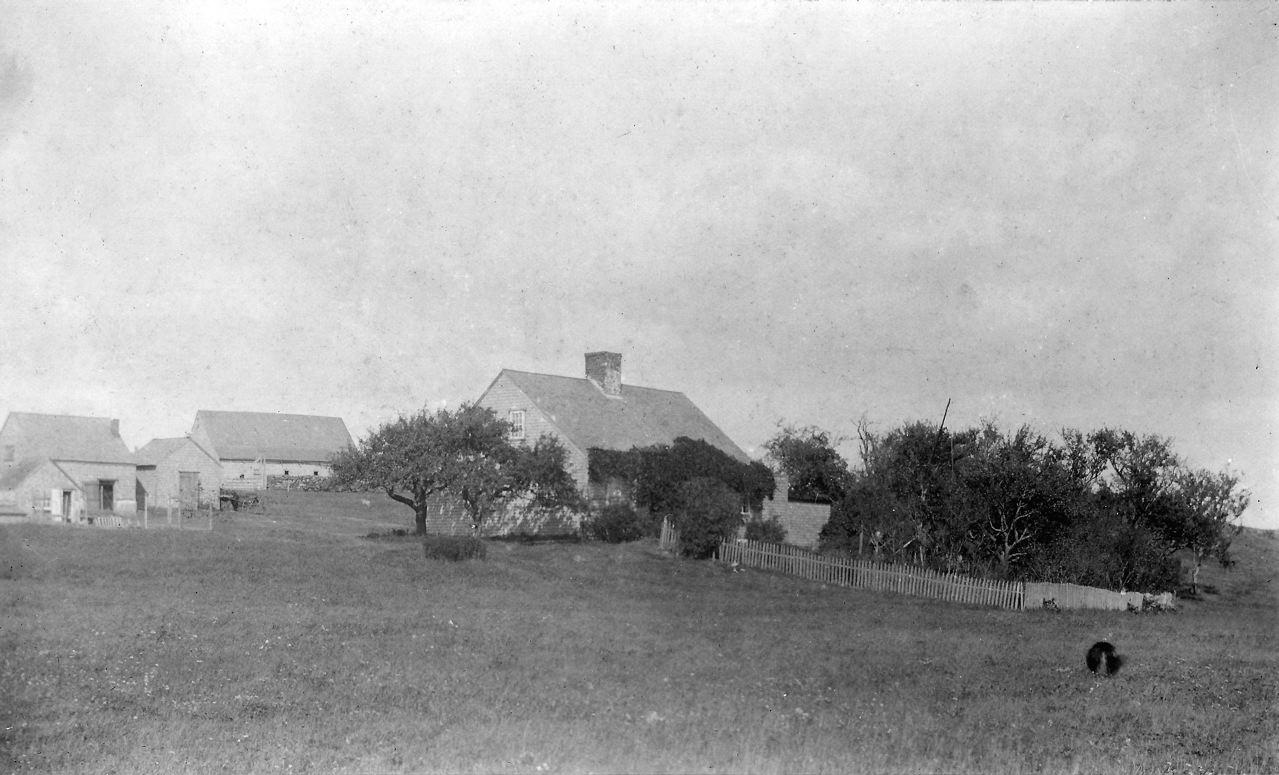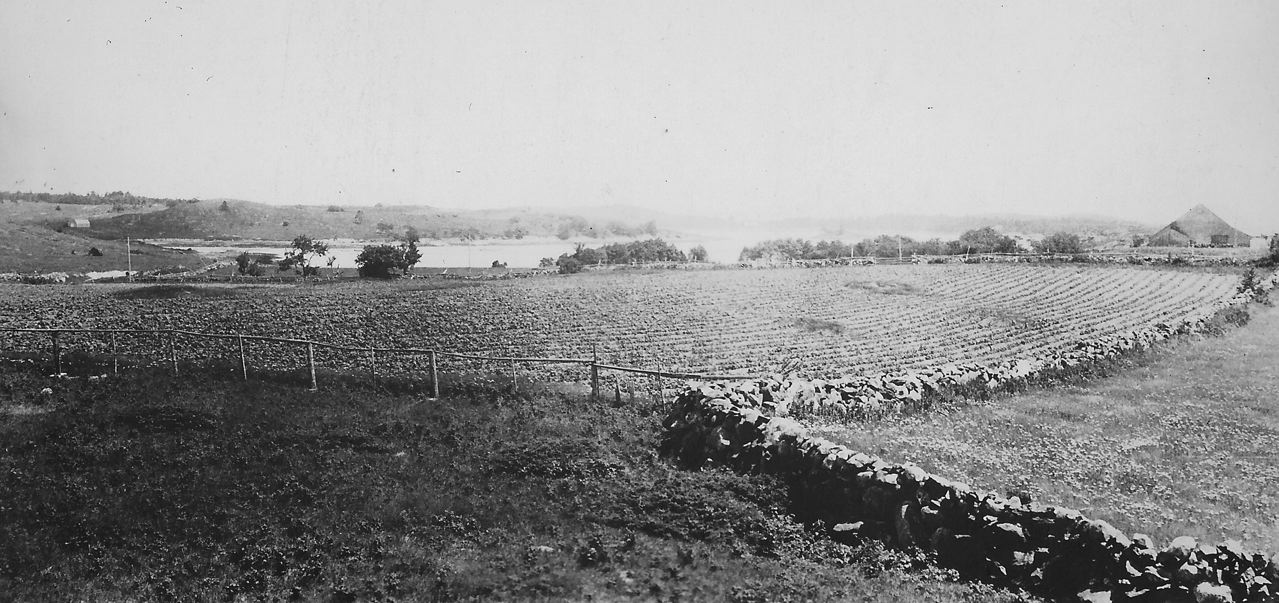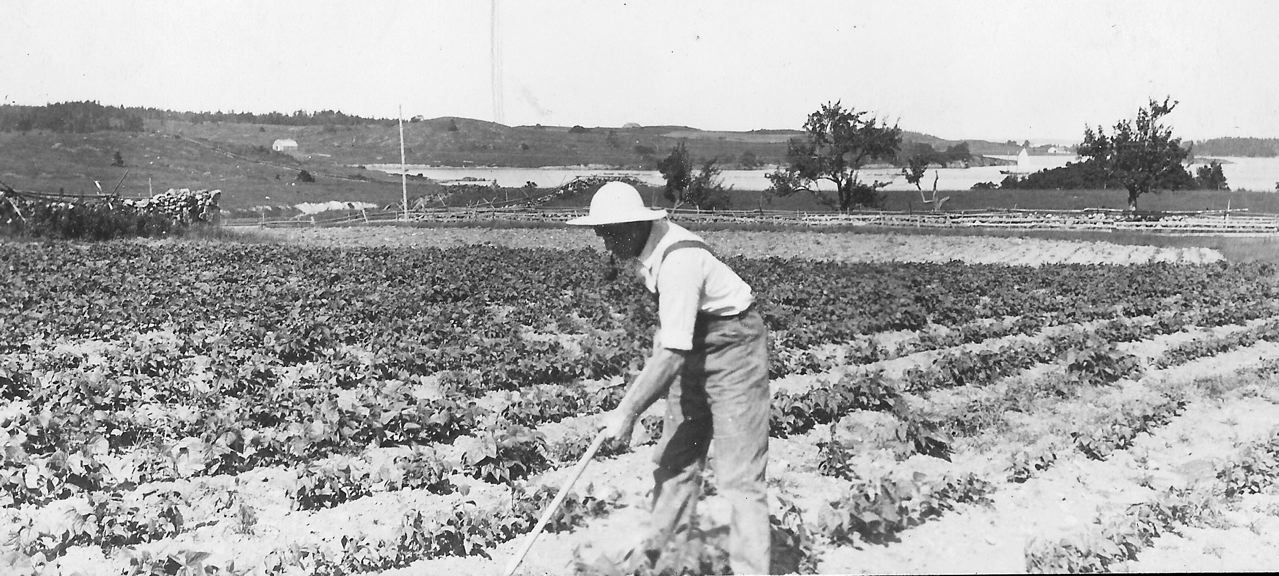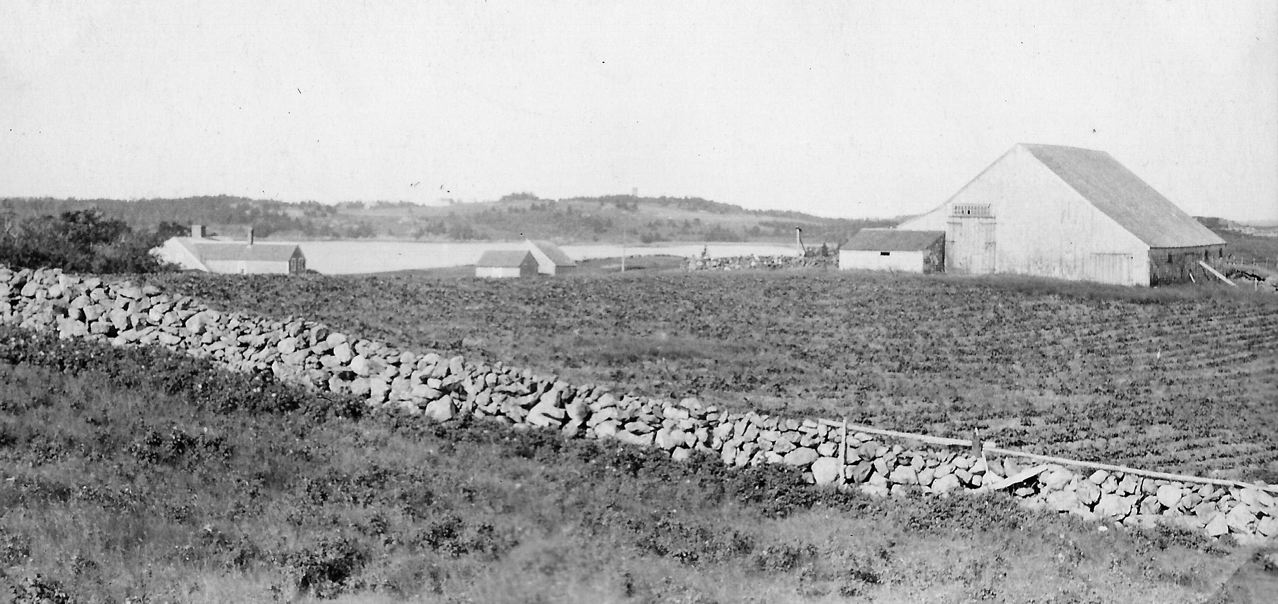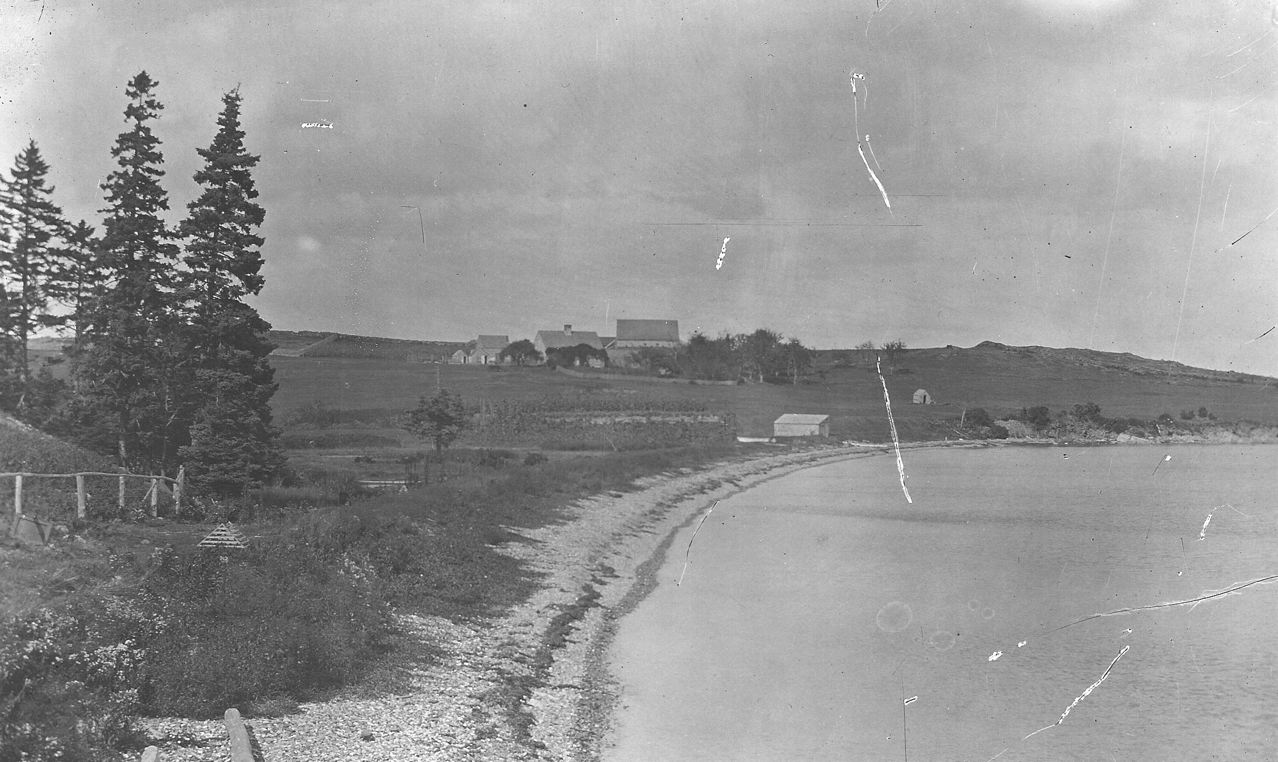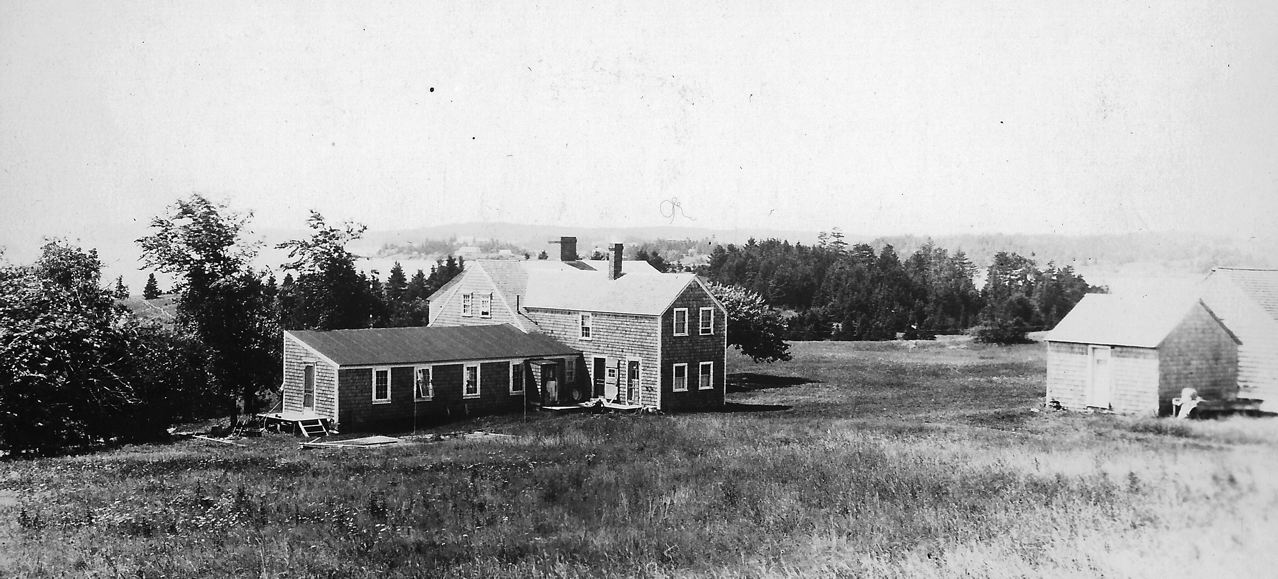The Turner Farm │Then and Now
Written by Lydia Webster Brown
Images courtesy of the North Haven Historical Society
The Turner Farm, located at Fish Point on the southern shore of North Haven Island in Penobscot Bay, is a place that has sustained centuries of human habitation. With a history that includes the centuries long presence of Indigenous people, a 200 year old family farm, several decades as a summer estate, and a now renewed life as a working farm, this land holds many stories.
North Haven and the surrounding islands and waters are part of the unceded territory of the Wabanaki, the People of the Dawnland. Indigenous to the region known as Maine, the Wabanaki have been here for over 13,000 years and today include the Abenaki, Maliseet, Micmac, Passamaquoddy, and Penobscot people.
In the 1970s, archeological excavations at the Turner Farm revealed over 6,000 years of Wabanaki presence on the land and earned the site recognition on the National Register of Historic Places. The land, which includes a large shell mound and burial ground, represents the cultural heritage of the Wabanaki and their ancestral ties to this coastline.
The land’s history as a farm began in the late 1700s when Samuel and Mary Cushing Thomas from Marshfield, Massachusetts settled at Fish Point. Like other White settlers, the Thomas family came to the Maine coast to claim and colonize the islands. For the 200 years following Samuel and Mary’s arrival in 1784, the farm passed through six generations of the Thomas family.
During the latter half of the 19th century, the farm was among the largest and most productive on the island. At the time of the 1850 Agricultural Census, James Thomas, grandson to Samuel and Mary, managed the farm with his wife Sarah and their ten children. According to the census, the farm encompassed 280 acres and the Thomas family kept 1 horse, 10 milk cows, 2 oxen, 18 other cattle, 80 sheep, and 3 swine. The census showed the Thomas farm grew wheat, corn, barley, potatoes, peas and beans, and hay. In addition, the farm produced wool, butter, and cheese. Compared to the 71 other North Haven farms listed on the 1850 census, the Thomas farm was the largest in acreage, kept the most milk cows and sheep, and was the greatest producer of cheese (1200 pounds!).
In 1860, the youngest of James and Sarah Thomas’s ten children, a daughter named Clara, married Jewett Turner from Palermo, Maine. After Jewett’s service in the Union Army during the Civil War, he and Clara settled at Fish Point and the Thomas Farm gradually became known as the Turner Farm.
Over a century later, in 1984, William Rice, grandson to Jewett and Clara Thomas Turner, sold the land to George and Joyce Moss who kept the site as a summer vacation home. By 2008, the land changed hands again, this time to Donald Sussman and Chellie Pingree who sought to revive the land’s agricultural past. Since then, the land has been a working farm and is owned by the American Farmland Trust.
SOURCES CITED
Agricultural Census, 1850, courtesy of the North Haven Historical Society
Thomas and Turner family genealogical files at the North Haven Historical Society
Revisions to this history of Turner Farm were made in 2024 to acknowledge the thousands of years of Wabanaki presence on the land. In addition, references to “Red Paint People” were removed by the author as advances in archaeology recognize it as a Maine archaeology myth and a persistent erroneous narrative that has negatively impacted Wabanaki land and water access, federal recognition, repatriation, and identity.
For more information, see “Red Paint People and Other Myths of Maine Archaeology” by David Sanger (2000) and “In Conversation With the Ancestors: Indigenizing Archaeological Narratives at Acadia National Park” by Bonnie Newsom, Natalie Lolar, and Isaac St. John (2021)
For more information about Wabanaki history and culture, please visit the educational resources available at Wabanaki REACH and Holding up the Sky, an exhibit by the Maine Historical Society.
For more information about the island’s farming history, visit the North Haven Historical Society’s exhibit “Farming on North Haven: Yesterday, Today, and Tomorrow” either in person at the museum or organization’s website.
